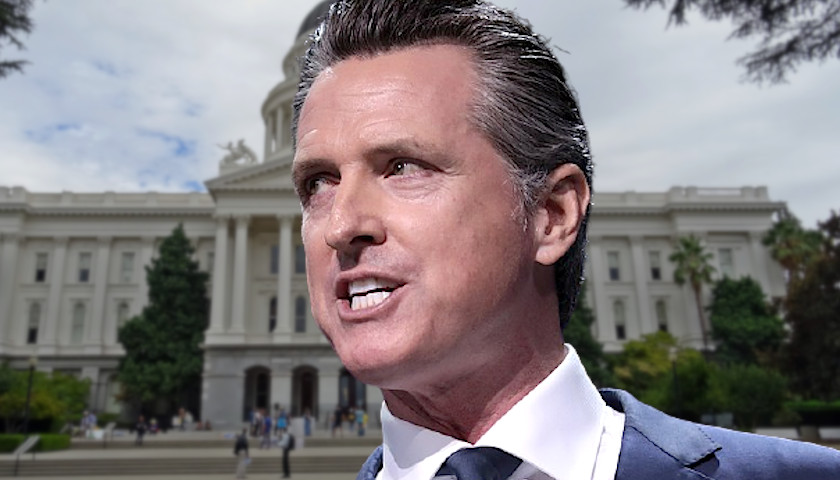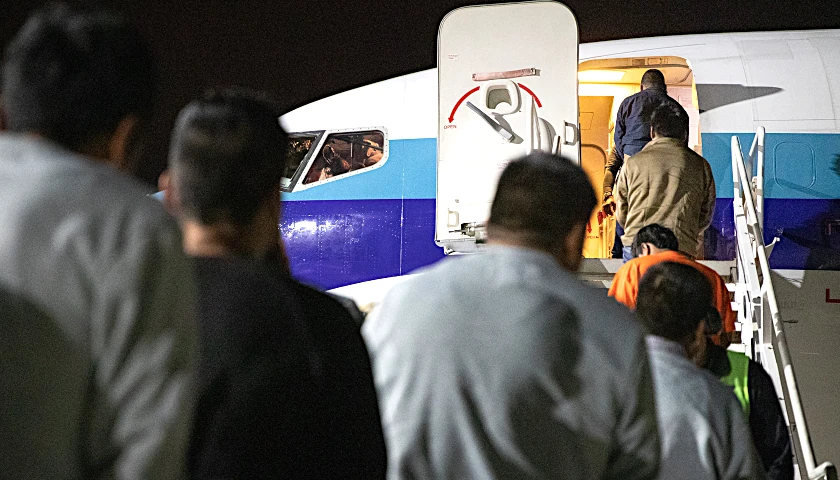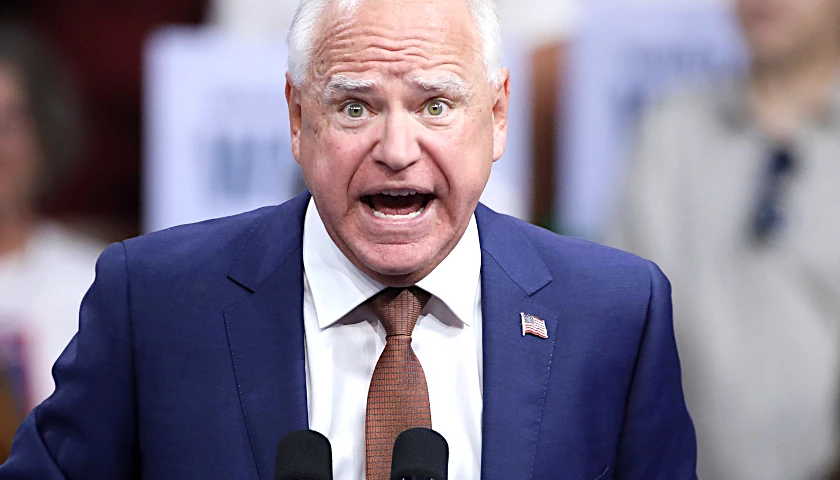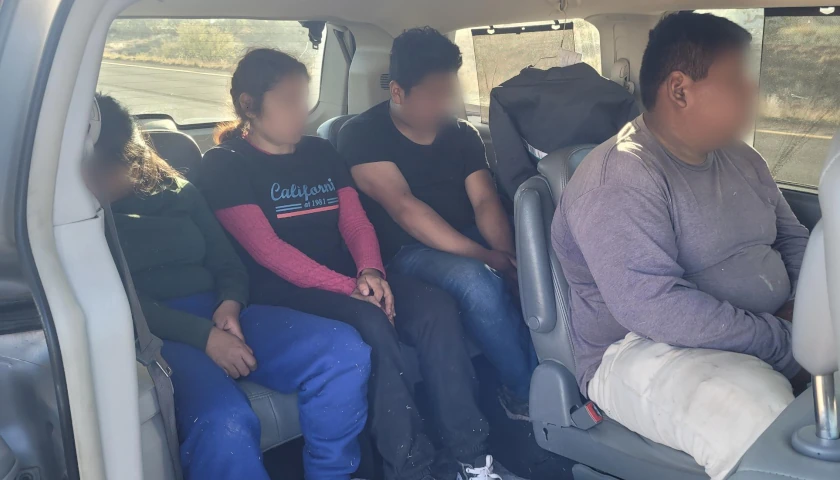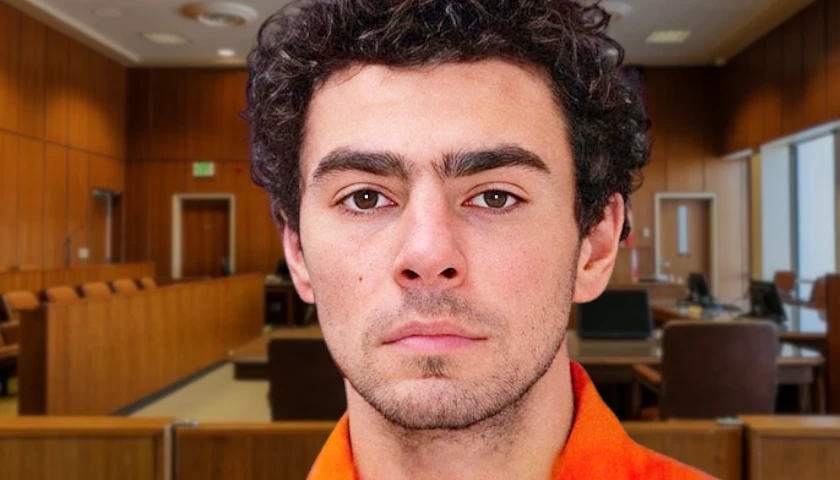by Susan Crabtree
California Democrats are standing with Gov. Gavin Newsom as Republican unity around the effort to remove him from office is splintering over how to limit the GOP candidate field and thus pose the strongest recall challenge.
But proponents of the recall, considered a long shot most of last year, over the weekend celebrated a milestone: They reached the 1.5 million signatures needed by mid-March to qualify for a special election to remove the first-term governor. Yet with Democratic election officials expected to invalidate roughly 20% of all signatures gathered, recall organizers will continue working toward a goal of 1.8 to 2 million signatures by the deadline to allow for a buffer, a threshold they’re confident of reaching.
In the last few days, national Republican Party money has started flowing in to back the effort, prompting Democrats to begin circling their wagons and launch what Democratic strategist Steve Maviglio has dubbed “Operation Keep Another Democrat Out.” Maviglio served as the press secretary for former Gov. Gray Davis, who in 2003 became the state’s second top executive to be recalled.
“There’s an orchestrated campaign to get all these people to speak up now – and the strategy seems to be all-hands-on-deck to keep another Democrat from getting into this,” Maviglio told RealClearPolitics.
As Newsom has increased his public appearances in recent weeks and eased coronavirus restrictions, a stream of prominent California Democrats has spoken up to support him, warning ambitious fellow Democrats not to even think about throwing their hats into the ring if the recall becomes reality in the coming months.
Several high-profile elected party officials in recent days have made a show of swearing off a challenge to Newsom from the left, including Rep. Ro Khanna, the Silicon Valley progressive who co-chaired Sen. Bernie Sanders’ presidential campaign; Eleni Kounalakis, the state’s lieutenant governor (the first woman to serve in that position); and Fiona Ma, the state treasurer who is often mentioned as a likely candidate for higher office.
“The governor does not deserve to be recalled. Period,” Kounalakis told Politico over the weekend. Newsom, she said, has been forced to deal with very difficult circumstances in responding to the pandemic. “It would be shameful for any Democrat to be part of this Republican-driven process,” she said.
State Sen. Steve Glazer, a moderate Democrat, released a video on Twitter labeling the recall campaign a “distracting and destructive fool’s errand,” arguing that Newsom has been working “tirelessly to lead the state through the pandemic.” Even though the two have some policy differences, he said Newsom acted in “good faith” and “with the best interests of Californians at heart” in his approach to coronavirus lockdown policies (which critics have called confusing) and vaccinating residents (the state’s rate ranks 23rd out of 59 states and territories).
But Rob Stutzman, who served as deputy chief of staff for Arnold Schwarzenegger — the winner of the recall effort to replace Davis — warns that it’s very early in the process and Newsom shouldn’t feel too comfortable despite the public Democratic pronouncements of support.
Stutzman cited the example of Cruz Bustamante, who served as the lieutenant governor under both Davis and Schwarzenegger. He jumped into the recall race in the late summer of 2003 once Democrats realized the governor could be defeated — despite having foresworn such a run. Cruz initially held an early lead over the Republican Schwarzenegger, but the action movie star ultimately eclipsed Bustamante, 48.6% to 31.5% (with state Sen. Tom McClintock drawing 13%), in the final vote tally. Voters had approved the Davis recall by a margin of 55.4% to 44.6%.
“I wouldn’t be surprised if there were one of them who gets in,” Stutzman said of Democrats swearing fealty to Newsom.
“What does Antonio Villaraigosa have to lose? Parties don’t discipline anyone anymore,” Stutzman added. He was referring to the former mayor of Los Angeles and longtime state Democratic pol who previously served as speaker of the State Assembly. Villaraigosa ran for governor in the open 2018 primary but came in third behind Republican businessman John Cox, losing his chance for a head-to-head match-up against Newsom.
As Democrats scramble to hold the line and back Newsom, it’s the California Republican Party that is trying to impose some discipline of its own. Without a big-name candidate emerging so far, GOP operatives fear a free-for-all that would fracture their base and prevent voters from consolidating behind one candidate. Newsom will likely prevail against the recall unless a popular, well-funded candidate emerges or an existing one gains traction as Newsom’s popularity continues to fall.
At the California GOP’s spring organizing convention this weekend, Republicans will consider a bylaw change allowing party leaders to determine who will receive the state GOP’s endorsement in the recall. The proposal, if successful, would plow under rules requiring that multiple hurdles be met by a candidate to earn the endorsement, including a 60% vote among the 1,429 central committee delegates. The proposed change is viewed as an attempt to boost the candidacy of former San Diego Mayor Kevin Faulconer, a centrist who was term-limited out of running again in 2020.
But the move is sparking anger among some recall organizers who view it as a betrayal of the grassroots movement to oust Newsom. Opponents also argue such a change is misguided because they believe Faulconer lacks a strong and loyal following among Republicans statewide.
“It’s a pretty darn tone-deaf move on the part of a very close-knit group of insiders who believe that they alone should be able to anoint a candidate here,” said Carl DeMaio, the president of Reform California, a conservative organization that has helped promote the recall movement. DeMaio is a popular radio talk show host in Southern California who previously served on the San Diego City Council and twice ran for Congress. “Faulconer’s team is doing this because they know that he has no chance to really become the consensus candidate because nobody knows who he is statewide … and people who know him in San Diego don’t like him.”
“They are bending over backward to manipulate the process and hand the endorsements to the weakest of the candidates,” he asserted.
The California Republican Party counters that the bylaw change merely permits a “conversation” about the party endorsement process in a recall, “but does not prescribe how it will take place.”
At a Los Angeles event last week spotlighting an open private school and a closed public school, Faulconer announced he would challenge Newsom in either the recall or in the regular 2022 gubernatorial election. He joins Cox, Newsom’s 2018 opponent, who threw his hat into the ring last year. Political newcomer Major Williams, an African American GOP businessman who ran for mayor of Pasadena last year, also has announced a challenge to Newsom in 2022.
Richard Grenell, the former ambassador to Germany and acting director of national intelligence in the Trump administration, is also shaking up the potential recall race with moves suggesting he could run. DeMaio has high praise for Grenell, a personal friend and a fellow gay Republican who, DeMaio has said, would be an excellent ambassador to California’s LGBTQ community and could fire up the conservative base and help rebuild the state party.
“He would instantly be the front-runner and would be by far the strongest candidate in governor’s race,” DeMaio said Tuesday in an interview ahead of a Wednesday night recall rally in San Diego.
Instead of changing the endorsement rules to make it easier for the party’s executive committee to designate its preferred candidate, DeMaio argues that those who helped organize the recall petition and collect signatures should have an integral role in the endorsement process. This could be done through a series of conventions or gatherings similar to the Iowa caucuses. Such a process would help rebuild the state’s GOP volunteer and grassroots activist base, which has been hemorrhaging registered voters in recent years, DeMaio argued.
Despite recent public statements of GOP solidarity, groups actively involved in organizing the Newsom recall are growing increasingly frustrated with party leaders. All last year, the California Republican Party declined to support the recall effort, one of several failed endeavors of its kind against Newsom since his 2018 election. But late in 2020 the campaign started gaining traction when Newsom attended a dinner party — maskless — at the tony French Laundry restaurant just as he was discouraging family gathering for the holidays and frustration mounted over his latest set of lockdowns amid a coronavirus surge. The signature petition drive picked up steam, and GOP leaders took notice.
With the recent movement, last week the Republican National Committee donated $250,000 to the California GOP to help pay for more signature-gathering. The state party over the weekend then provided $125,000 directly to Rescue California, which, along with the California Patriot Group, has helped lead the recall push.
But Democrats label the national Republican Party’s involvement as partisan meddling in California’s political process – and a move voters will resent. The party hasn’t won a statewide race since 2006 and has spent the decade since Schwarzenegger left office trying to rebuild.
Garry South, a longtime Democratic strategist who ran Davis’ political campaigns, said putting the national GOP seal of approval on the recall is the absolute worst strategy Newsom’s opponents could pursue. It was already a mistake, he said, when Newt Gingrich and former Arkansas Gov. Mike Huckabee threw their support behind the effort in late December. (They cited Newsom’s stay-at-home orders and news that prosecutors are investigating a scheme by state prison inmates who received nearly $1 billion in federal unemployment benefits while out-of-work residents waited in vain for their checks.)
Back in 2003, Davis and his team knew that Karl Rove and then-President George W. Bush were behind the recall effort, but it was difficult to make the case, South argued, because “the Republicans at that point were smart enough to keep their nose out of it” in a public way.
“Now we have the RNC donating a quarter of a million dollars. That’s insane,” he added. “If you’re a Republican, the last thing you want is for this recall to look like it is being supported by national Republicans. … The Republican brand is death in California.”
– – –
Susan Crabtree is RealClearPolitics’ White House/national political correspondent.
Photo “Gavin Newsom” by Gage Skidmore. CC BY-SA 2.0.

